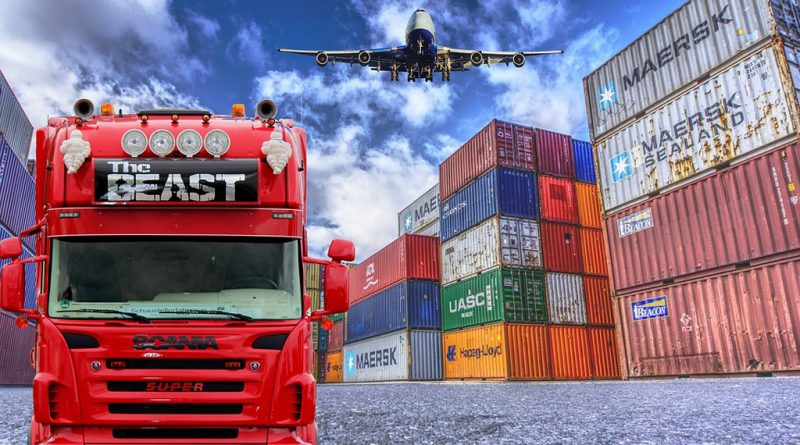Logistic victory over the coronavirus
The ‘corona wind’ first seriously disrupted logistics (especially transport), but logistics quickly ‘came to its senses’, so to speak, and in the end, beat the coronavirus while emerging even stronger from this ‘fight’, unlike any other economic activity.
There is nothing unusual about the word ‘logistics’ popping up in everyday conversations. There are numerous types of logistics – economic, technical, war, media, political, and even those that are ‘on the other side of the law’, as it were. “He provided logistical support” and ‘logistics’ are a pleonasm, because logistics, with all its operational aspects, has, at least so far, been treated as support for the company’s core business. But lately, and especially in the post-corona economy, logistics and supply chain management have increasingly become a generator of competitive advantage and a business driver for a large number of companies. Of course, this is much more applicable to other countries in the world than our region where logistics, despite all the improvements (primarily in the shape of new motorways, modern warehouses, improved modes of operation, etc.) is still a problem, at least according to the World Bank’s Logistics Performance Index research.
In modern business, logistics is a multifunctional area, with continuous 24/7 work operations. It is difficult to identify a large number of business areas with such a demanding and complex range of activities as logistics. Paradoxically, logistics activities are often invisible and taken for granted. Namely, end consumers, but also all the participants in the supply chain, consider it normal and implicit that the right product is available at the right time, in the right place, in the right quantity and with very competitive delivery costs. Only when there is a delay in the supply process, a lack of products on supermarket shelves and/or production inputs, the importance of logistics comes to the fore.
The coronavirus pandemic has swept through the world several months ago. It stopped businesses in their tracks, emptied out factories and shopping centres, de-socialized many societies and even ‘threatened’ that people will go hungry and that certain products will disappear from shop shelves. It was then when all the Doubting Thomases of the world remembered logistics, how to deliver something somewhere, what type of transport to use, which warehouses to store it in, which stocks to keep as optimal, how to maintain the level of customer service considering extreme market volatility (remember, back on 15th March, how people in our country went on a rampage, buying huge quantities of cooking oil, flour, toilet paper, etc., fearing what tomorrow brings). In those days, it was especially important to organize logistics and the entire pharmaceutical supply chain, due to the sensitivity of the products and the extremely increased demand for them.
Large and powerful countries were the first to realize the importance of logistics. In the first analyses, the Germans stated that “logistics is the third most important economic branch” in that country
It is safe to say that, during those first few months of the pandemic, an efficient logistics system stabilized the market in all countries, led to the gradual balancing out of supply and demand, eliminated people’s fear that something would disappear from the market and that they would remain hungry and thirsty, as well as that there won’t be enough medicine or ventilators for each patient. With some exceptions, there was no shortage of goods on store shelves, production processes were not interrupted due to poor supply (they were interrupted due to health reasons), and people quickly regained confidence in the business systems of national economies. All of this happened due to efficient logistics systems, as a bloodstream of supply of almost all types of products. Following the first impact of the coronavirus pandemic and the awareness that we can control it, at least in the logistical sense, the leading retailers, even in their advertising messages, rightly thanked their sales and logistics staff, as pillars of the organization in a retail company.
The ‘corona wind’ first seriously disrupted logistics (especially transport), but logistics quickly ‘came to its senses’, so to speak, and in the end, beat the coronavirus while emerging even stronger from this ‘fight’, unlike any other economic activity. Of course, large and powerful countries were the first to realize the importance of logistics. In the first analyses, the Germans stated that “logistics is the third most important economic branch” in that country and the Americans wrote a detailed analysis called “What Happened to the Great American Logistics Machine?” The construction of the largest logistics centre in Europe, spanning close to 550,000 square metres, is underway in France. The largest companies in the world have started to make significant investments in logistics activities and people, as well as reviewing the existing pre-corona supply chains. For instance, the world’s biggest online retail chain, Amazon, is investing millions of dollars in the largest new logistics start-up called Beacon, while employing many more people in its logistics business to support its e-commerce activities (let me see who will dare to claim that retail can do without logistics). Zara will close small, unprofitable stores, open large new ones that are optimal from the aspect of profitability and will be in better locations, and transform parts of large stores into cross-docking centres (small and very agile warehouses) in the service of growing online sales (there are no online sales without efficient logistics).
It is difficult to identify a large number of business areas with such a demanding and complex range of activities as logistics
This would have been an idyllic logistic essay if, as rule of the thumb, the things were not completely the opposite in Serbia. Namely, logistics has lost a battle in terms of changing/improving curricula in higher education in Serbia. Paradoxically, that happened during the corona business period, at the most important faculty in our country. Although it was pointed out that it was difficult to find a university of an economic/ managerial profile from the so-called Shanghai List of the top 300 universities that does not have a logistics and/or supply chain-related major (at any level of study), that during the coronavirus pandemic the importance of logistics was growing everywhere, that all employers have a real need for the logistics know-how, and that students love studying it, everything was in vain. Serbian arrogance, jealousy, envy and ignorance prevailed, which motivated everyone to reject the special module ‘Logistics Management’ at Master’s studies, while additionally, the subject of logistics was marginalized in undergraduate marketing and retail management studies, which is the biggest paradox of them all (the owner of Amazon, Jeff Bezos, would probably roll his eyes if he heard this). But nothing is over until it’s over! Experience shows that logisticians are a tough crowd.
Professor Slobodan Aćimović, PhD, University of Belgrade’s Faculty of Economics, Diplomacy&Commerce





